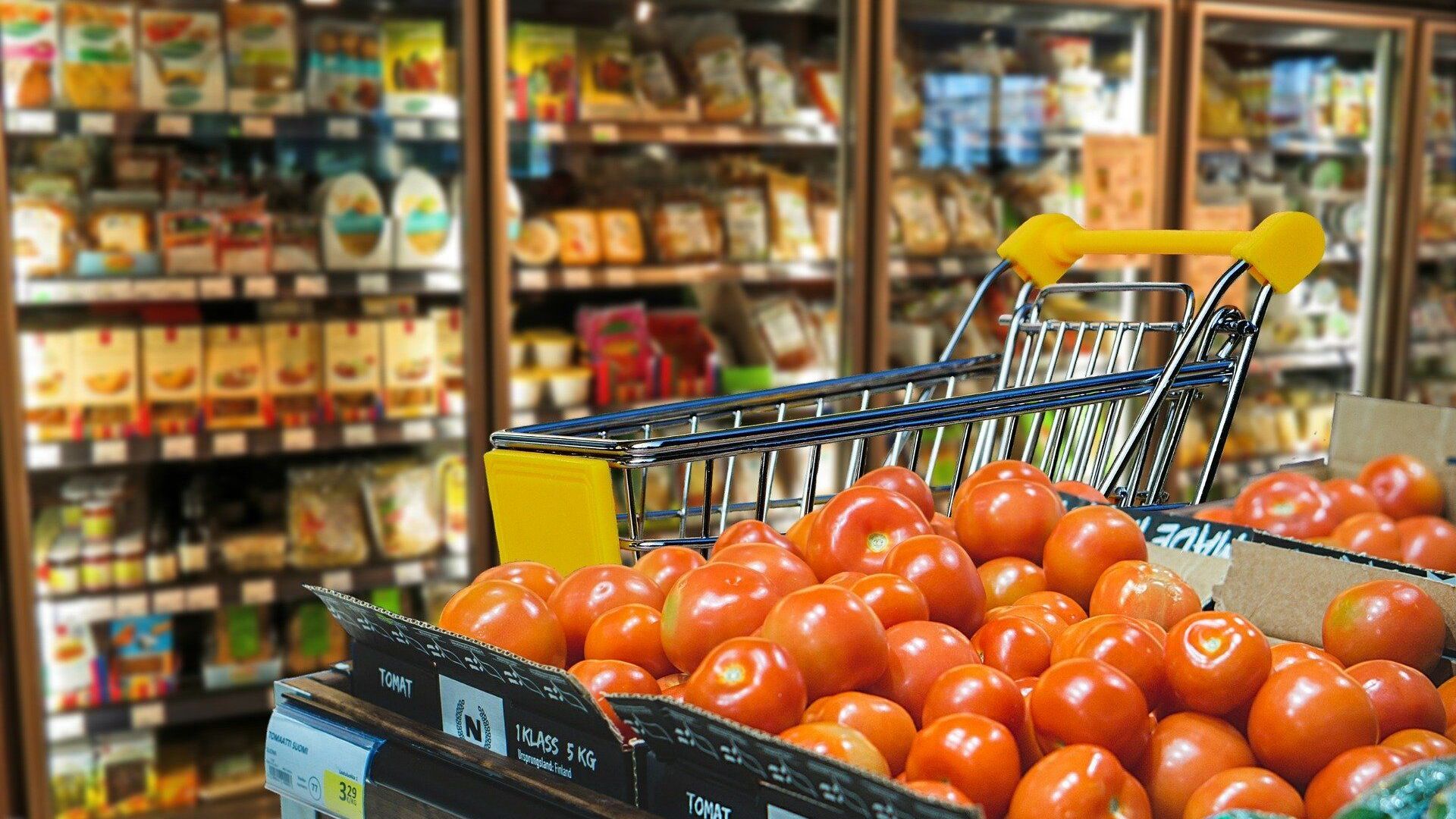https://sputnikglobe.com/20220611/one-in-six-germans-forced-to-skip-meals-thanks-to-food-price-crunch-survey-1096221605.html
One in Six Germans Forced to Skip Meals Thanks to Food Price Crunch: Survey
One in Six Germans Forced to Skip Meals Thanks to Food Price Crunch: Survey
Sputnik International
Europeans face a perfect storm of soaring inflation, self-inflicted energy price shocks caused by sanctions on Russia, and fears of a looming recession. In... 11.06.2022, Sputnik International
2022-06-11T13:20+0000
2022-06-11T13:20+0000
2022-08-06T13:36+0000
germany
prices
food
costs
inflation
https://cdn1.img.sputnikglobe.com/img/107749/69/1077496981_0:12:1920:1092_1920x0_80_0_0_f2c315272a9fdb51a553009551637b5c.jpg
Nearly one in six Germans (16 percent) have been forced to go without regular meals to make ends meet, and another 13 percent may face a similar situation if food prices continue to rise, a new survey by the Institute for New Social Answers (INSA) for Germany’s Bild newspaper has found.According to the survey, people from low-income households whose income after taxes is less than 1,000 euros per month have been the most heavily affected, with 32 percent of respondents forced to skip meals regularly.42 percent of those polled also indicated that they are forced to cook more sparingly due to inflation, leaving out certain ingredients in meals, or dessert. Another 41 percent said they rely on supermarket special offers and discounts to stretch their euros as far as possible.INSA’s study was conducted on 7 June, with a representative sample of 1,002 people queried.Verena Bentele, president of the Social Association of Germany, a major Berlin-headquartered socio-political advocacy organization, echoed Bauer’s concerns, saying the figures show that people are “suffering greatly from the increased prices.”Germans and other Europeans have faced out of control inflationary and price pressures in recent months, with Handelsblatt reporting double-digit growth on some food items in April. Last month, Deutsche Wirtschafts Nachrichten reported that EU sanctions on fertilizer imports from Russia and Belarus would result in losses of up to 3 million tonnes of harvest in the current year. Europe relied on the two countries for some 4.6 million tonnes of its 13 million tonnes-worth of fertilizer consumption last year, while local production efforts have been hampered by the large amount of energy required to produce them.Russian President Vladimir Putin has lamented at the European Union’s decision to commit “economic suicide” by depriving itself of cheap and reliable Russian energy supplies, and expressed sympathy for ordinary Europeans and Americans suffering as a result of their leaders’ decision-making. “The truth is that the current problems that millions of people in the West face are the result of many actions by the ruling elites of their states, their mistakes, myopia and ambitions. These elites are not thinking about how to improve the lives of their citizens. They are obsessed with their own selfish interests and surplus profits,” he suggested at a briefing in March.
https://sputnikglobe.com/20220529/german-farmers-set-to-lose-up-to-3-million-tonnes-of-harvest-due-to-eu-ukraine-related-sanctions-1095862737.html
germany
Sputnik International
feedback@sputniknews.com
+74956456601
MIA „Rossiya Segodnya“
2022
News
en_EN
Sputnik International
feedback@sputniknews.com
+74956456601
MIA „Rossiya Segodnya“
Sputnik International
feedback@sputniknews.com
+74956456601
MIA „Rossiya Segodnya“
germany, prices, food, costs, inflation
germany, prices, food, costs, inflation
One in Six Germans Forced to Skip Meals Thanks to Food Price Crunch: Survey
13:20 GMT 11.06.2022 (Updated: 13:36 GMT 06.08.2022) Europeans face a perfect storm of soaring inflation, self-inflicted energy price shocks caused by sanctions on Russia, and fears of a looming recession. In Germany, the region’s traditional economic and industrial powerhouse, ordinary people have taken a hit to their wallets, while businesses have warned of large-scale losses and layoffs.
Nearly one in six Germans (16 percent) have been forced to go without regular meals to make ends meet, and another 13 percent may face a similar situation if food prices continue to rise, a new
survey by the Institute for New Social Answers (INSA) for Germany’s Bild newspaper has found.
According to the survey, people from low-income households whose income after taxes is less than 1,000 euros per month have been the most heavily affected, with 32 percent of respondents forced to skip meals regularly.
42 percent of those polled also indicated that they are forced to cook more sparingly due to inflation, leaving out certain ingredients in meals, or dessert. Another 41 percent said they rely on supermarket special offers and discounts to stretch their euros as far as possible.
INSA’s study was conducted on 7 June, with a representative sample of 1,002 people queried.
Adolf Bauer, president of the German Association for Social Affairs, told Bild he was “greatly worried” by the survey’s results, saying it was a “clear sign that the measures taken by the federal government to date are not sufficient.” Bauer had previously warned Berlin not to introduce an energy embargo on Russia, saying it would add to suffering among ordinary people caused by out of control energy, food and rent prices.
Verena Bentele, president of the Social Association of Germany, a major Berlin-headquartered socio-political advocacy organization, echoed Bauer’s concerns, saying the figures show that people are “suffering greatly from the increased prices.”
“Members tell us they can only afford pasta and toast. We urgently need the VAT on fresh foods to be abolished and financial relief for those who have so far received nothing from the government’s energy price flat-rate,” Bentele urged.
Germans and other Europeans have faced out of control inflationary and price pressures in recent months, with Handelsblatt
reporting double-digit growth on some food items in April. Last month, Deutsche Wirtschafts Nachrichten
reported that EU sanctions on fertilizer imports from Russia and Belarus would result in losses of up to 3 million tonnes of harvest in the current year. Europe relied on the two countries for some 4.6 million tonnes of its 13 million tonnes-worth of fertilizer consumption last year, while local production efforts have been hampered by the large amount of energy required to produce them.
Russian President Vladimir Putin has lamented at the European Union’s decision to commit
“economic suicide” by depriving itself of cheap and reliable Russian energy supplies, and expressed sympathy for ordinary Europeans and Americans suffering as a result of their leaders’ decision-making. “The truth is that the current problems that millions of people in the West face are the result of many actions by the ruling elites of their states, their mistakes, myopia and ambitions. These elites are not thinking about how to improve the lives of their citizens. They are obsessed with their own selfish interests and surplus profits,” he
suggested at a briefing in March.


